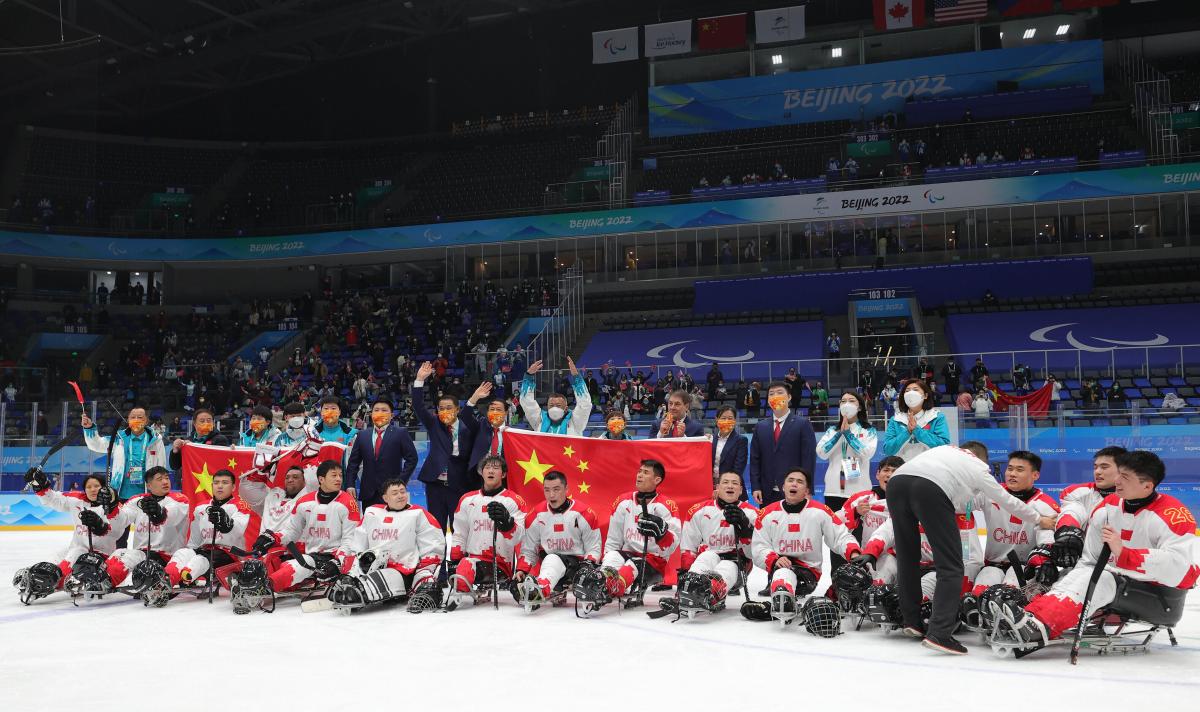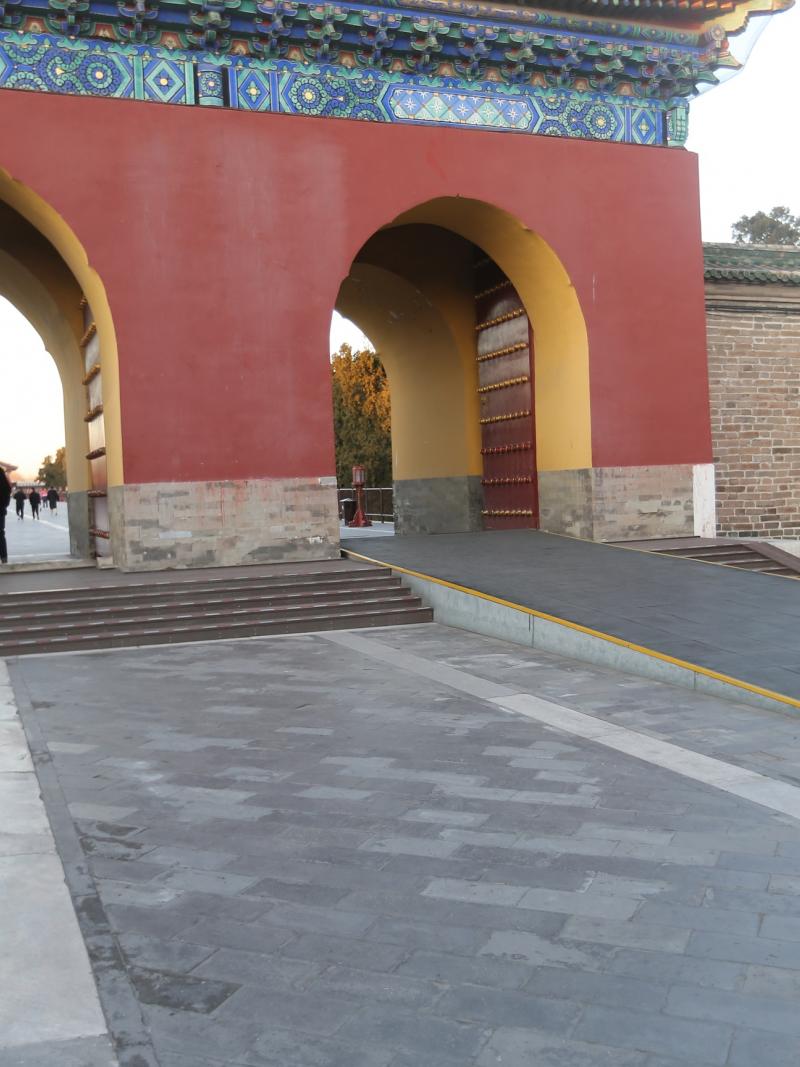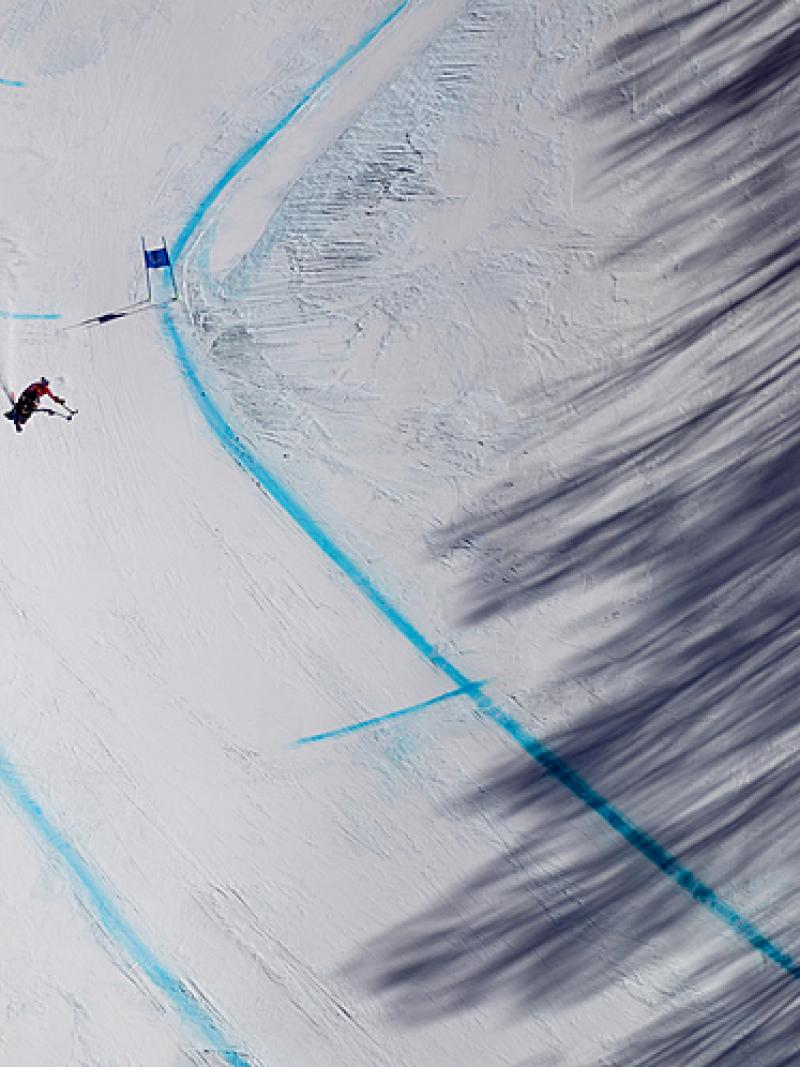Beijing 2022: A year on, China reaps social, economic benefits created by the Games
One year after the Olympic and Paralympic Winter Games, all the Beijing 2022 venues are being enjoyed by the public and local athletes, and the winter sports industry in the country is booming 03 Feb 2023
The first city ever to hold both the Summer and Winter Games, Beijing delivered superbly organised Paralympic Winter Games last year. As with the 2008 Paralympics, which were used to advance the rights of China’s 83 million people with disabilities, the 2022 Games promise to be a catalyst for change.
The Opening Ceremony held at the Bird’s Nest, a legacy venue from Beijing 2008, kicked off nationwide excitement for winter sports. From teen prodigies to seasoned competitors, 558 Para athletes from 46 National Paralympic Committees helped jumpstart China’s newly emerging winter sports scene.
With 18 golds and a total of 61 medals, China topped the medal table at a Winter Paralympics for the first time in their history.
Greater engagement
The Beijing 2022 Paralympic Winter Games are in line with the IPC’s Vision to ‘Make for an inclusive world through Para sport’. Prior to the Games there were increased opportunities for more people to participate in Para winter sports, while infrastructure accessibility improvements will leave legacy benefits for persons with disabilities in China for many years to come.
Beijing won the right to stage the Games in 2015, and straight away started to engage its citizens in Para sport. Since 2016, the “China Snow and Ice Sports Season for Disabled Persons” has been held annually aiming to build a platform for disabled people to participate in winter sports. It has expanded from four provinces in the first year to all provinces in China.
The number of persons with disabilities engaged in winter sports has grown from about 10,000 in the launch year to more than 300,000 in the 2021 season.
Additionally, the number of winter Para athletes has increased from less than 50 to more than 1,000 and the number of technical officials has grown from zero to hundreds. China winning its first ever Paralympic Winter Games medal – a gold in wheelchair curling at PyeongChang 2018 – was a taste of what was to come in Beijing and increases the competition in Para snow sports for future Games.
Andrew Parsons, President of the International Paralympic Committee (IPC), said: “A stronger presence of China will strengthen all the different Para sports that we have in the Paralympic programme. We’re seeing an improved standard and increased competition at every Games with more nations emerging and challenging. I believe that Beijing 2022 will be as important for Para sport in China as the summer 2008 Paralympics were.”
A burgeoning sector
The aim to establish China as a snow and ice destination had already been achieved before the Games began. By the beginning of 2021, the country had already built 654 standard ice rinks, up by 317 per cent compared with 2015; and 803 indoor and outdoor ski resorts, up by 41 per cent from 2015 levels.
One year after the Games, as many as 346 million people have taken part in winter sports since 2015. According to the China Tourism Academy, during the 2024-2025 ice and snow season, China’s winter leisure tourism sector is expected to have welcomed more than 520 million visitors and earned revenue of more than CNY 720 billion (approx. USD 107 billion).
The mushrooming growth of this sector has had knock-on benefits for health and leisure, society and the broader economy. For example, for those living in areas surrounding the venues, the Games have created some 81,000 new job opportunities.
Change starts with sport
The Paralympic Games are delivering transformation by encouraging host cities and countries to change their laws. Long-term governance changes will leave a legacy that benefits generations of persons with disabilities in both Beijing and Zhangjiakou.
New regulation has been introduced to the Beijing Municipality which ensures that construction projects have accessible environments. Additionally, the standards system has been improved, with more than 30 accessibility design standards that cover areas like facilities, residential communities, public buildings, municipal roads, and rail transit being introduced.
In Zhangjiakou, the planning, design, and construction for all new, expanded and renovated public buildings, residential buildings, urban roads and roads within residential communities, public green areas and public service facilities in the city are required to be carried out according to the requirements of the Beijing 2022 Accessibility Guidelines. The accessible facilities of construction projects are also required to be designed, constructed, and delivered at the same time as the main body of the project.
Sustainable venues
Aiming to reduce the environmental impact of the Games, Beijing 2022 re-used five competition venues from the 2008 Olympic Games while embracing new construction standards for those venues that were newly constructed for Beijing 2022 – from water and energy efficiency to building insulation and cooling technologies. A core driver for this was the IOC’s Olympic Agenda 2020, which requires host cities to minimise new construction to reduce emissions and ensure long-lasting use of any new venues.
One year on, Chinese residents can already visit, use and enjoy the Beijing 2022 Games venues. The National Aquatics Centre, known as the “Water Cube”, which hosted Para swimming events at the Paralympic Games in 2008, was turned into an “Ice Cube” to host the Beijing 2022 wheelchair curling competitions. The venue has seen massive public interest, with more than 3,000 visitors on day one of its opening, earning it the nickname of “the hottest ice” in Beijing.
Yanqing, one of the three Paralympic zones, hosted Para alpine skiing at the Games. It now invites amateurs to follow a three-kilometre ski trail that runs through a forest and over a bridge, offering scenic views of Haituo Mountain. More experienced skiers can enjoy the slopes of the National Alpine Skiing Centre.
The Genting Snow Park is already one of the busiest Beijing 2022 venues this winter season. Some 30 events, including professional and amateur competitions, junior training programmes and skiing festivals, have been scheduled at the resort so far.
Beijing is committed to making increased use of all its venues, encouraging their multiple, year-round use and upgrading facilities to expand capacity and improve their quality. Rebuilding old factory workshops, warehouses and commercial facilities into indoor winter sports venues has also been recommended by the local authorities.
Showcasing new technologies
Winter sports are heavily impacted by the changing climate, and this topic was never far from the Games.
Fuel-efficient vehicles accounted for 85 per cent of all the vehicles used in the competition zones, including 710 hydrogen-powered vehicles introduced to Zhangjiakou which are still running today. A preferred mode of public transport, they showcase the technology’s immense potential. More than 80.7 million passengers have used the fuel-cell vehicles since the Games, covering 27 million kilometres. By 2025, China plans to produce around 50,000 hydrogen fuel-cell vehicles.
Other carbon-cutting technologies included natural CO2 refrigeration systems at the Ice Cube. This innovative technology – used for the first time at the Paralympic and Olympic Games and in China – helped cut carbon emissions from the process of cooling the ice rinks to nearly zero, and considerably reduced energy consumption.
Renewable energy powered every venue at Beijing 2022, enabled by the Zhangbei flexible direct current grid project, which transferred electricity from Zhangjiakou to Beijing. Beyond powering the Games, it also supplied 10 per cent of Beijing’s electricity and boosted the city’s use of clean energy.
Following the publication of the post-Games Sustainability and Legacy reports, Beijing will soon celebrate the one-year anniversary of the 2022 Winter Games. Beijing and Zhangjiakou will host a series of cultural and sporting events to mark the legacy of the Games under the theme “Re-walk the Road to the Extraordinary Beijing 2022 Games: Together for a Shared Future”.








